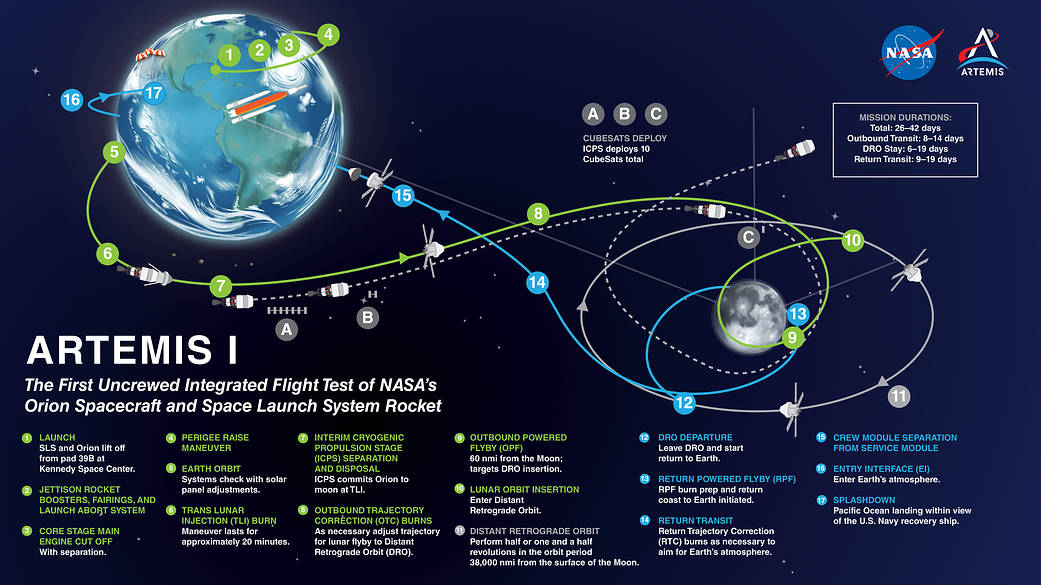Space fans may know that Orion is the only human-rated spacecraft designed for travel to deep space, and not only will it return humans to the Moon, but it may even get them to Mars. But how well do you really know Orion? Here are 11 little known facts about the spacecraft that's about to make history.
1. There’s an exercise machine inside Orion and it’s similar to a rowing machine
The compact flywheel exercise machine is used for aerobic and strength workouts, and works similar to a rowing machine. All four astronauts have to exercise every day (except launch and landing days) to keep from losing bone mass. In order to exercise comfortably and efficiently, the machine will be placed on a 45 degree angle.
The energy exuded by Orion’s heat shield as it comes back into Earth’s atmosphere is approximately 640 gigajoules. This amount of energy dispersed is about two times the amount of energy created by a spacecraft returning from the International Space Station.
The primary way Orion puts on its breaks before it splashes down is with its heatshield. As it screams through Earth’s atmosphere, friction and air resistance causes extreme temperatures on the heat shield reaching about 5,000°F during re-entry. These high temperatures are about 2.5x the temperature of Hawaiian lava and 66% hotter than spacecraft coming back from the International Space Station.
4. Returning from the Moon, Orion will go 24x faster than a speeding bullet
5. Orion will travel 1000x farther into space than the International Space Station
6. There are 11 parachutes to slow down Orion in the Earth’s atmosphere and safely land on the ocean
After Orion’s heat shield scrubs off most of the Orion’s speed, the parachute system with its 11 parachutes will slow the crew module during the last part of re-entry from 324 mph to 17 mph for a soft ocean splashdown. Orion uses is three main parachutes to land, though it can land safely using only two. All three main parachutes combined would cover a football field from 10 yard line to 10 yard line.
8. During the Artemis I mission, Orion will go about 40,000 miles past the Moon
9. The computers on Orion are 20,000x faster than Apollo’s
10. Orion’s crew module is rather roomy, sleeps four comfortably and has a private toilet
At 315 cubic feet, Orion’s crew module provides 30 percent more cubic volume of space than the Apollo capsule. The seats inside of the crew module fold down and create a lot of room for the four astronauts to live in for up to three weeks. It even has a private toilet, or “hygiene bay,” about the size of one on a small passenger airplane.
11. Orion can operate in deep space for a long time
Orion has room for supplies and consumables to safely sustain a crew of four for up to 21 days. It can function unattended for six months in orbit when docked to the Gateway at the Moon. Orion has also been evaluated to support a 1,000 day mission to Mars when equipped with additional propulsion, habitats and supplies as part of a larger Mars transport system.





